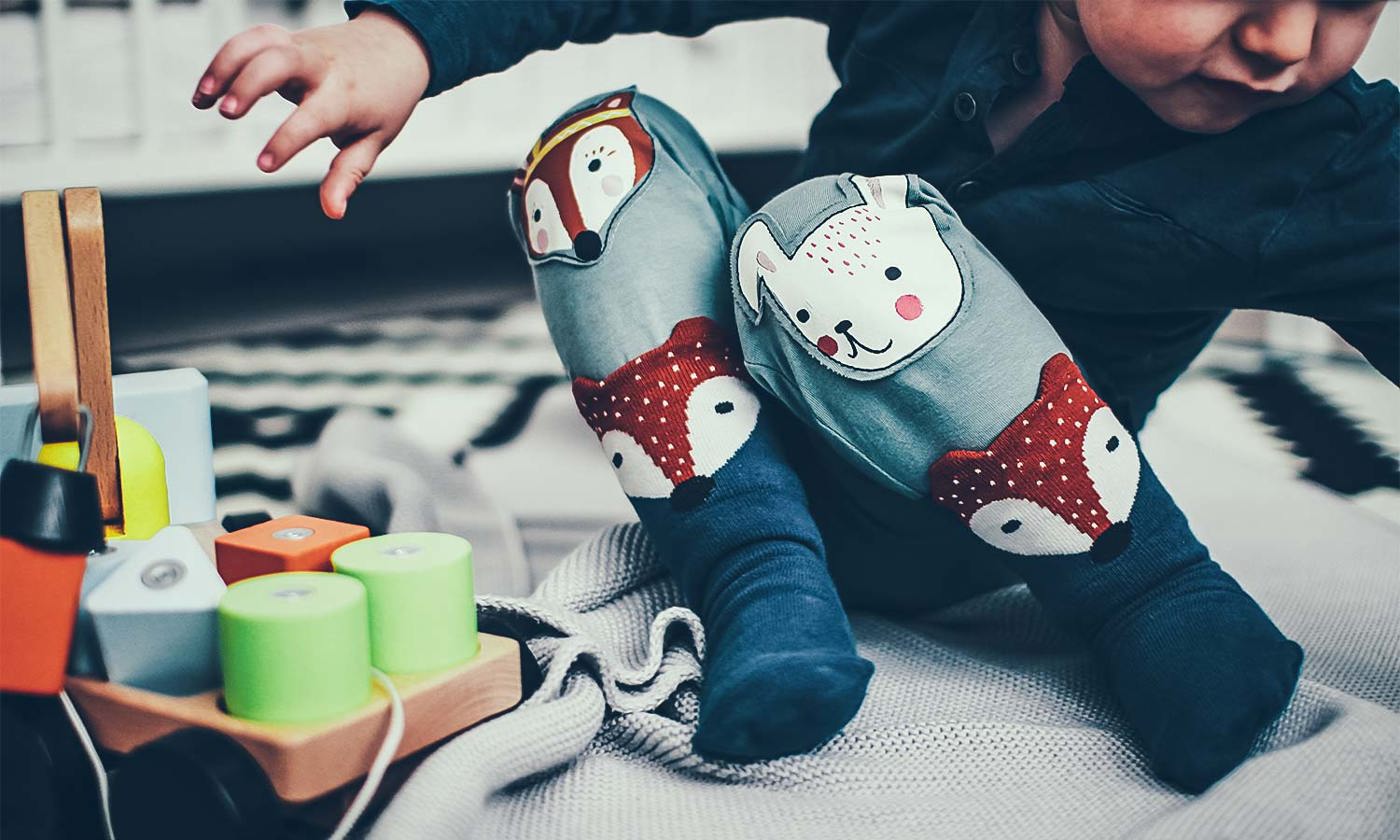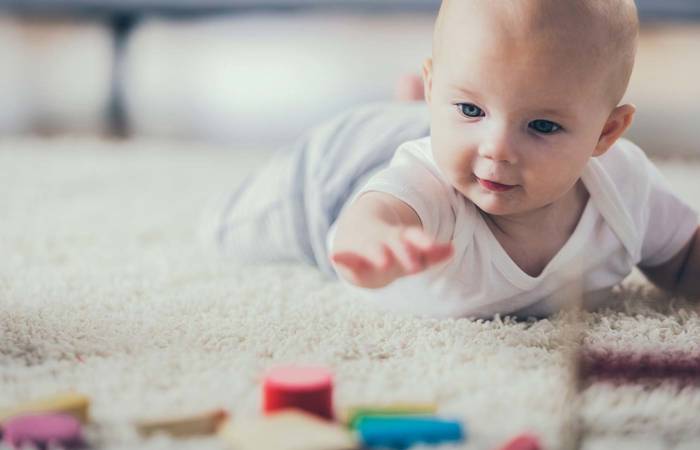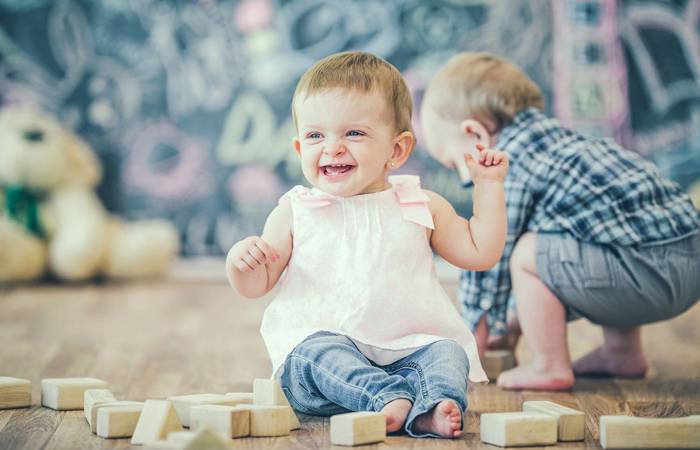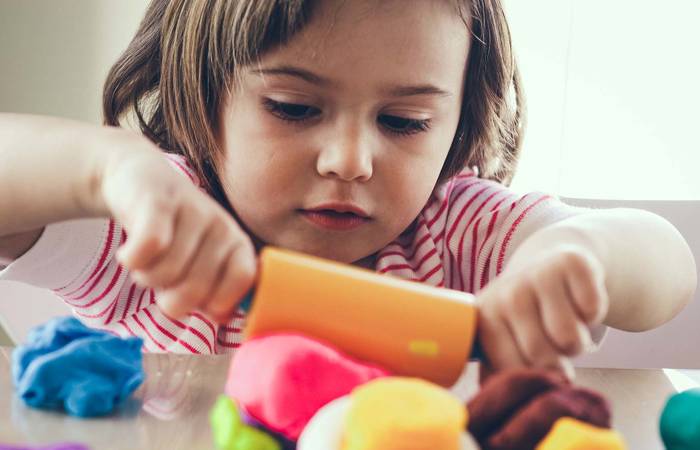Like what you see?
Sign up to receive more free parenting advice.
Thank you for subscribing to our newsletter!
Early Learning

Photo by Daiga Ellaby on Unsplash
To the uneducated eye, a small child playing with rocks and stones doesn’t look like much more than a small child playing with rocks and stones.
With the help of an early childhood educator, however, and with a bit of encouragement, this activity can be turned by the child into a learning event – rocks can be sorted in to colours, sizes, textures and shapes, and suddenly your child has learned something new.
Despite the old ‘children are sponges’ saying, learning doesn’t just happen by osmosis. It’s a process, and it’s a good idea for all parents to think about what their children are learning, and how they’re learning it, especially when they are young.
Play-based learning isn’t just about letting kids do whatever they want. It’s about adults guiding and evaluating the play to engage them more deeply with the learning process.
It’s a concept that’s central to the Australian Government’s Early Years Learning Framework, described as “a context for learning through which children organise and make sense of their social worlds, as they actively engage with people, objects and representations.”
It generally involves children constructing and manipulating various items. Children may gather leaves and rocks from outside, and organise them into patterns or shapes.
A child’s impulse for play is natural. However, achieving rich, experience-based play is not as easy to accomplish as people think.Lisa Palethorpe
Play-based learning has been shown to have many benefits.
In their research1, authors of the book, Tools of the Mind: The Vygotskian Approach to Early Childhood Education, Dr Elena Bedrova and Dr Deborah J. Leong, say preschool children need to learn a set of fundamental cognitive, linguistic, and social-emotional competencies to shape their minds for future learning – not just academic learning but all learning.
They say these skills include oral language, deliberate memory, focused attention and self-regulation. They not only shape the way in which we learn to read but how we resolve a conflict with a neighbour or kick a soccer ball. They refer to Russian psychologist Lev Vygotsky’s research that says children do not automatically learn these skills – they require explicit instruction by teachers and parents.
Vygotsky’s learnings also state that children usually react to their most recent direction and that learning needs to take place by repetition or based on an experience being personally meaningful.
Play is essential for brain development
Goodstart Early Learning early childhood educator Lisa Palethorpe says play is essential for brain development and school readiness.
“A child’s impulse for play is natural. However, achieving rich, experience-based play is not as easy to accomplish as people think.”
When a child takes part in rich, experience-based play, they build and strengthen skills for life-long learning and life success.
“Importantly we know that if a child starts school behind developmentally they are likely to stay behind. So as parents and educators, we play a vital role in helping to ensure that children are provided with rich learning experiences in their early years that promotes their learning, development and well-being.”
One of the most important benefits of play is that it provides a different quality of interaction between parents and their children.
“When you play with your child, you can see the world through their eyes and gain more understanding of their abilities and needs,” Ms Palethorpe says.
“This opens the door for parents to help a child build new skills that are important for school, later learning and life, such as social skills.”
She said research shows children’s brains develop best in an environment of emotional security.
International early learning expert Canadian Professor Jane Bertrand takes the theory of play-based learning a step further, believing children learn more efficiently from playing with the master players in the playground, than their adult teachers.
At eight or nine months old, babies are starting to initiate playful exchanges with other young children, and by the age of five, they are rapidly expanding their capacity to understand and participate in the world around them, and their peers.
Educators must be responsive
Professor Bertrand says research shows children are often more interested in listening to another child who they perceived to know more than them, rather than an educator or parent who knows a lot.
But Professor Bertrand says the educators must be responsive, figure out how children are thinking and help construct the best possible environment to support play – for example intervening during play to keep a storyline going.
She says play-based learning is a complex form of natural enquiry that requires educators knowing each child’s overall development, including their emerging strengths and interests.
“They must watch the dynamics and work out which child can learn from another,” she says. “They must know when to stand back and when to intervene to promote the learning experience.”
Save the Children Director of Australian Programs, Heather Finlayson, says play is the cornerstone of early childhood education and is how children organise and make sense of the world around them as they interact with people, objects and each other.
“Play offers children the opportunity to practise emerging skills and supports the development of communication, social and emotional wellbeing and thinking abilities.”
What does play-based learning look like?
When you look at how children learn, they learn best when something is meaningful to them, Ms Palethorpe says.
“Essentially parents engaging in play-based activities with their children need to make sure it is above all else, enjoyable for them.
“At times play could be challenging or cause frustration but essentially enjoyment should be a central feature and is created by ensuring the activity has meaning and stems from the interests of the child.”
She says parents engaging in play-based activities with their children involve physical, verbal or mental engagement of a child with materials, people, ideas and environment.
Play-based learning tips for parents
- When you are cooking a meal at home, ask children to help out by measuring, mixing and pouring. This is great for numeracy skills.
- If you go for a walk for a drive, encourage children to notice the different shapes of leaves and trees, and the colours of cars.
- When shopping, talk about what products cost and what those numbers look like. Count how many items you will buy.
- When playing outside or riding a bike, ask children to look at the different parts of the bike, or count the number of puddles they ride or walk through.
Finger Telescope
When outside, make a telescope with your hands. Circle your fingers and hold them to your eye and look at your child telling him/her, “I see you!” Show him/her how to make his/her own finger telescope. Take turns looking through the finger telescope and sharing what you see.
This simple game is not only fun, it gives your child the chance to pay attention to his/her surroundings and think flexibly as he/she sees familiar people and things in a new way. Being flexible is a big part of problem-solving and making the most out of life.
See all tips
1 Uniquely Preschool Elena Bodrova and Deborah J. Leong (http://www.ascd.org/publications/educational-leadership/sept05/vol63/num01/Uniquely-Preschool.aspx)
Get Advice
Real parents. Real problems. We’re here with a group of leading early learning and parenting professionals to answer your questions.






